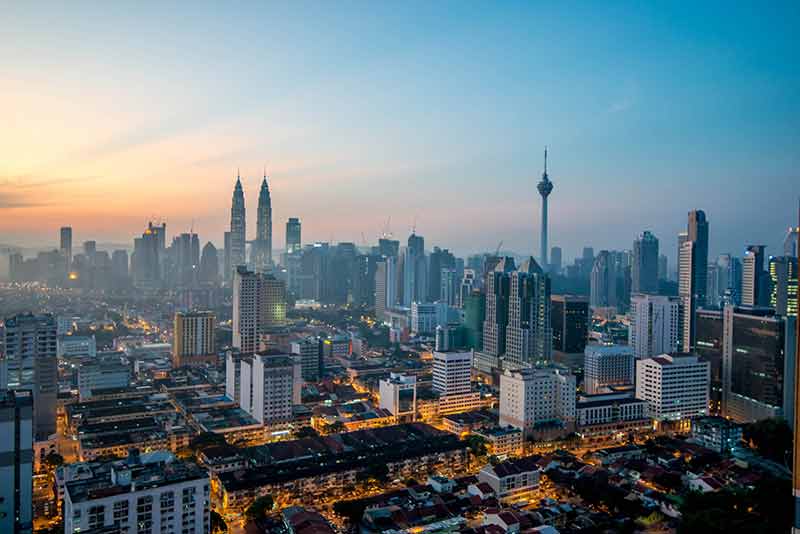
In the Malaysian
National Budget for the year 2018, the Government has announced a series of
measures to prepare the country for the fourth Industrial Revolution (IR 4.0) and
driving the growth of the digital economy.
To support IR 4.0 businesses and
investment activities, the Government will provide a matching grant of RM245
million (USD 58 million) under the Domestic Investment Strategic Fund to
upgrade Smart Manufacturing Facilities.
The Futurise Centre in Cyberjaya
will be strengthened as a one-stop centre for corporations and universities to
develop product prototypes as well as to boost innovation.
Tax incentives will also be
provided. The incentive period for Accelerated Capital Allowance of 200% on
automation equipment is being extended from year of assessment 2018 to year of
assessment 2020. In addition, capital allowance for ICT equipment, which
includes spending on computer software development, is claimable for the period
of four years, beginning year of assessment 2018 to 2020, including for small
and medium enterprises (SMEs).
Encouraging venture capital investments
To encourage venture capital
activities, a sum of RM1 billion (USD236 million) will be provided by major
institutional investors for investments in main selected sectors, co-ordinated
by the Securities Commission (SC).
The minimum investment limit in
venture companies will be reduced from 70% to 50%, effective year of assessment
2018 to 2022. Companies or individuals investing in venture capital companies
will receive a tax deduction equivalent to the amount of their investments, limited
to a maximum of RM20 million per year. Moreover, income tax exemptions
equivalent to the amount of investments by angel investors in venture companies
are being extended until 31 December 2020.
Digital Free Trade Zone
Malaysia will
become the first country in the world outside China to establish a Digital Free
Trade Zone (DFTZ). The DFTZ comprises an
e-Fulfillment Hub (to help SMEs and businesses in exporting their goods easily),
a Satelite Services Hub (which will be the region’s digital hub for global and
local internet-based companies facilitating end-to-end support) and an
e-Services platform (for managing cargo clearance and other processes needed
for cross-border trade).
The first phase is
expected to generate RM700 million worth of investment and create 2,500 job
opportunities. The Government provided RM83.5 million to construct then required
infrastructure for the first phase in Aeropolis, KLIA (Kuala Lumpur
International Airport).
In a commentary on the budget, MDEC
CEO, Datuk Yasmin Mehmood wrote that DFTZ will “Go Live” on 3 November and
1,900 export-ready SMEs will begin their export journey with the launch,
compared to a previous target of 1,500 SMEs.
Education
For the education of the TN50 (Transformasi Nasional 2050)
generation, the Government is allocating RM250 million.
Out of the this, 190
million will be directed to upgrade 2,000 classes into 21st century
Smart Classrooms, in order to enhance creative-based learning and innovative
thinking. Skills
such as
coding, app development, robotics, embedded programming and creative technology
would be imparted.
Computer science modules in primary
and secondary schools, including coding programmes, will be enhanced.
The sum also includes funding for
setting up a Science, Technology, Engineering and Mathematics (STEM) Centre to
develop the latest learning methods for training STEM specialist teachers, utilising
existing facilities at teachers training institute in collaboration with
Academy of Science, Malaysia.
Job creation and income generation
The Government has allocated RM 100
million to expand the eRezeki,
eUshawan and a new flagship initiative
called eLadang, under the Malaysian Digital Economy Corporation (MDEC).
eUsahawan is a digital entrepreneurship program aiming to
help the public enhance business growth via online sales. The eRezeki
initiative, based on the concept of crowd-sourcing aims to connect low-income
households to digital income opportunities. Participants are trained, qualified
and matched against suitable available tasks and/or work, helping them earn
additional income and acquire new skills, equipping them to cope with an
increasingly digital world.
Datuk Yasmin Mahmood wrote in her commentary that around 150,000 people would be trained
in 2018 under these two programmes, resulting in 341,745 people participating
in both programmes with an estimated total income and revenue of RM544 million.
eLadang aims to encourage farmers to leverage the latest
smart farming technologies such as IoT (Internet-of-Things) and BDA (Big Data
Analytics) to improve yield and income.
















